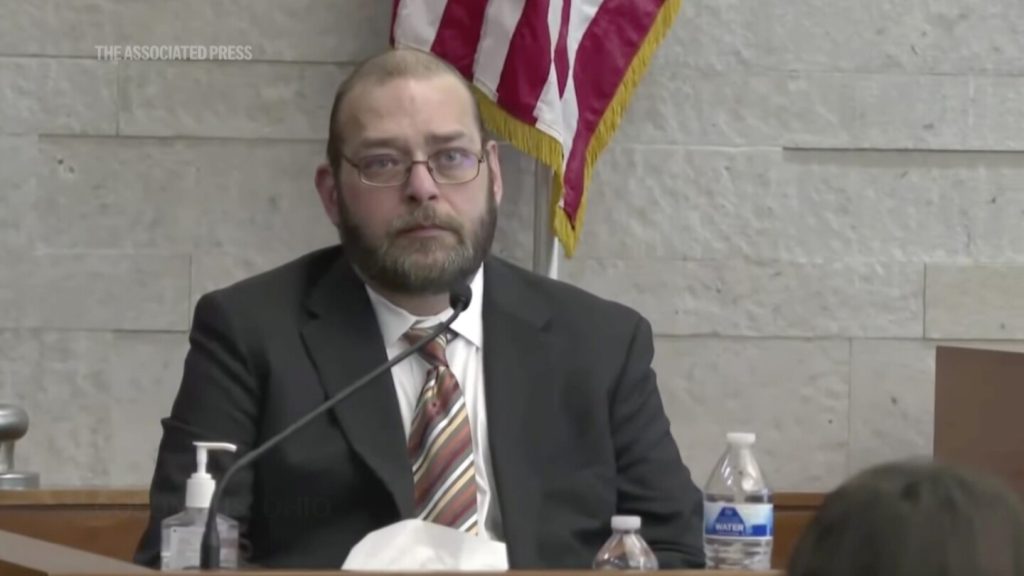Former police officer Adam Coy was convicted of murder in the shooting of Andre Hill, a Black man who was holding a cellphone and keys at the time of the incident. Coy, who served nearly two decades with the Columbus police force, shot Hill four times in a garage almost four years ago. The officer, who is white, claimed he thought Hill was holding a silver revolver but later realized it was just keys. Coy was fired after the shooting and tearfully testified that he thought he was going to die when he encountered Hill. The jury found Coy guilty of murder, reckless homicide, and felonious assault.
Body camera footage showed Hill exiting a friend’s garage holding a cellphone in his left hand just before he was shot by Coy. Despite being unarmed and following the officer’s commands, Hill was fatally shot. It took almost 10 minutes before officers at the scene tended to Hill, who later succumbed to his injuries at a hospital. The shooting led to the removal of the police chief, a $10 million settlement with Hill’s family, and the passing of Andre’s Law in Columbus, requiring immediate medical attention to injured suspects by police officers.
Prosecutors argued that Hill posed no threat to Coy and was compliant with his commands, leading to the murder conviction. Family members of Hill expressed relief at the jury’s decision, hoping it would send a strong message against police violence. However, the president of the police union in Columbus expressed shock at the verdict, claiming it would have negative repercussions for officers across Ohio. Coy’s defense attorneys maintained that he acted reasonably and in self-defense, despite Hill being unarmed.
Civil rights attorney Ben Crump, who represented Hill’s family, emphasized the importance of accountability in law enforcement and stated that the verdict showed that no one is above the law. Hill, a family man and skilled tradesman, was described as devoted to his loved ones and had dreams of opening his own restaurant. Coy’s personnel file revealed a history of complaints against him, including more than three dozen filed since he joined the department, with a significant number related to the use of force. The defense argued that Coy’s actions were justified given his perception of a threat from Hill.
The shooting of Andre Hill by former officer Coy sparked outrage and calls for justice, ultimately resulting in a murder conviction. The case highlighted issues of excessive force and racial bias within law enforcement, leading to significant legal and policy changes in Columbus. The verdict served as a reminder that law enforcement officers are not immune to accountability and must uphold their duty to protect and serve. Despite differing opinions on the verdict, the outcome of the trial will have far-reaching implications for police practices and public trust in law enforcement.


